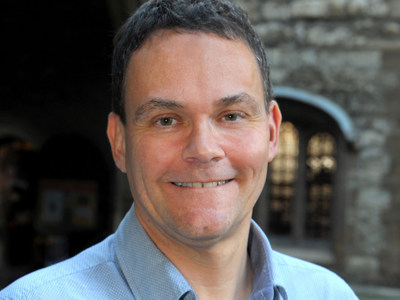
Endometriosis – the hidden disease
Stephen Jones, partner in Leigh Day’s medical negligence team, chaired the third event in the ongoing Women’s Rights in Healthcare series, focusing on the poorly recognised gynaecological disease, endometriosis
Posted on 15 October 2020
Stephen Jones, partner in Leigh Day’s medical negligence team, chaired the third event in the ongoing Women’s Rights in Healthcare series, focusing on the poorly recognised gynaecological disease, endometriosis.
If you’re not sure what that is, you are not alone. According to Endometriosis UK, 75 per cent of men have not heard of it, and 64 per cent of 16-24-year-old women haven’t either.
Endometriosis is a common, yet debilitating, condition where cells that line the womb (uterus) are found elsewhere in the body. It causes heavy, painful periods and can lead to fatigue, bowel and bladder problems, and infertility.
Around 1.5 million women are living with the effects of this disease in the UK, and it takes an average of seven years before it is even diagnosed.
Stephen introduced the audience to Frances Bell, who experienced a 17-year battle for recognition of her endometriosis, Mr Andrew Baxter, a consultant gynaecologist specialising in the disease, and Emma Cox, CEO of the charity, Endometriosis UK.
Fran began by telling some of her story:
“Soon after I started having periods, I would experience severe burning, cramping and pain every month. I was told by my GP it was normal period pain, but as the months and years went by it just got worse.
“There were times when the pain would make me pass out or vomit; I missed school frequently and had no social life. Despite multiple visits to the GP and an appointments with a gynaecologist, I was not properly investigated for endometriosis.
“Both doctors dismissed many of my symptoms, they documented in letters between them that I was anxious and highly strung, and that I had convinced myself I had endometriosis after reading a book on it.”
Over the following years, Fran’s physical and mental health suffered considerably as her symptoms continued to deteriorate. Aged 28, after changing GP practices and seeing a different gynaecologist, she finally had the investigations she needed for a diagnosis:
Fran explained:
“Unfortunately, a laparoscopy revealed I had stage four endometriosis [the most severe type], which had spread around my ovary and bowel. The damage meant I would not be able to get pregnant and my ovaries had also failed, so there were no viable eggs. My choice was to try and have a baby with IVF or undergo a hysterectomy to relieve the pain I was living with.”
Fran wanted a baby, and with the help of IVF and a donor egg, her son Harry was born two years ago. In the summer of 2020, Fran successfully challenged Nottingham University Hospitals NHS Trust’s handling of her clinical presentation by arguing that the doctors she saw as a teenager had not properly excluded endometriosis at the time. If they had carried out a laparoscopy, it would have led to the correct diagnosis and treatment many years earlier.
Fran feels there is still a need for a change in attitude from medical experts today, as she regularly hears from women facing similar struggles, and enduring long delays before getting a diagnosis.
Mr Andrew Baxter, consultant gynaecologist, began his presentation by acknowledging that there is much work to be done - at all stages of the care pathway - to help women get the right access and support for endometriosis.
He pointed out the sad statistic that in the 30 years he has practised medicine, the average time to diagnose endometriosis has remained unchanged, at 7.5 years.
Andrew stressed how important getting a diagnosis can be for a woman:
“Having the problem diagnosed is tremendously important as it moves management on from a patient with ‘painful periods’ to a confirmed disease that requires treatment. Women are often taking time off studies or work because of their symptoms; a diagnosis of endometriosis often leads to better support and understanding from employers and sometimes friends and family too.”
Andrew is hopeful that paternalistic attitudes will fade as more gynaecologists are being trained in the ‘gold standard’ diagnostic procedure for endometriosis.
He said:
“The Royal College of Obstetricians and Gynaecologists are training many more surgeons in laparoscopy nowadays. The problem is if you’re a specialist who doesn’t have this skill set, professional pride is a terrible thing and it can, in some cases, deter from referring on when you should.
“If trainees are now doing more of this type of surgery, they will undoubtedly see more endometriosis. My hope is that this raises the baseline level of awareness and care from generalist gynaecologists working in non-specialist centres in the future.”
Emma Cox, from Endometriosis UK, summarised the pertinent issues facing women with the condition today, including why it can take so long to get a diagnosis, the variation in services across the country, what specialist centres can offer, and how some professional’s approaches to treatment are inappropriate or simply unacceptable.
NICE guidelines for endometriosis in 2017, and Quality Standards from 2018, are not widely implemented – if they were, Emma believes this would provide a much-improved baseline level of care.
Emma outlined the aims of the charity:
“We are a tiny charity with big ambitions. We are calling for much more prompt diagnosis and have the goal of 12 months on average by 2030. We want to see much better access to care by specialists who have the right skills, offered at the right time. There needs to be more treatment options for endometriosis, and we need to find a cure.
“To do this there needs to be much more research into the disease. We are also passionate about raising awareness of menstrual wellbeing and what level of pain and distress should be considered ‘normal’ for someone having periods.”
The webinar concluded with many questions from women living with endometriosis, who are trying and struggling to access investigations and treatments.
Stephen Jones reported that when Fran’s successful litigation was published in the press, he was inundated with calls from women with similar stories. As stated in the discussion, there is clearly a long way to go to improve awareness of endometriosis and the care offered to women living with it.
Soon after I started having periods, I would experience severe burning, cramping and pain every month. I was told by my GP it was normal period pain, but as the months and years went by it just got worse."
Fran began by telling some of her story


